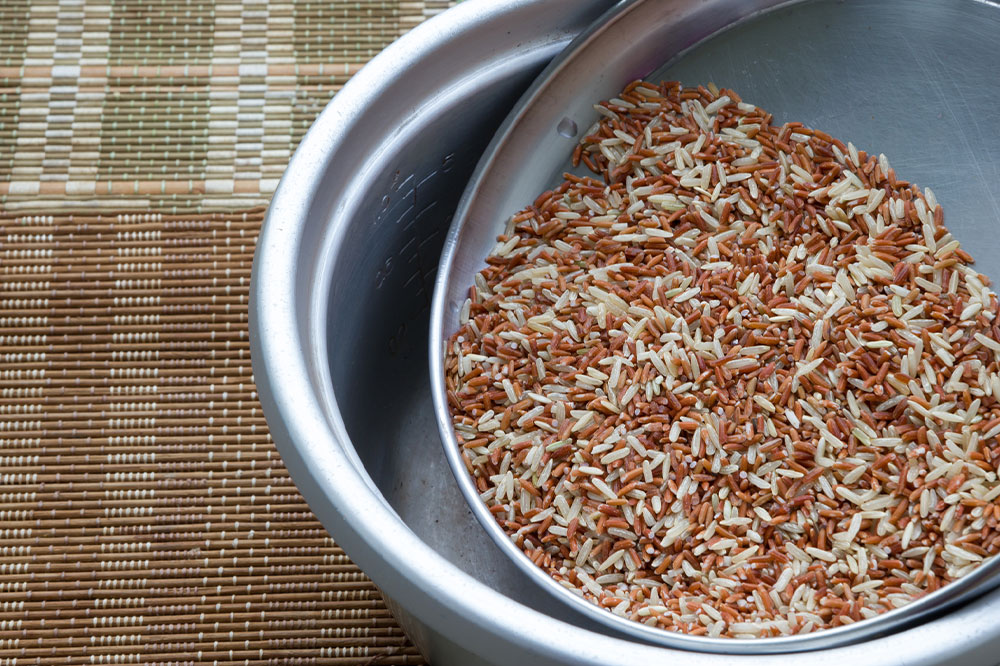Foods to Eat and Avoid to Prevent Heartburn

Heartburn is a common symptom triggered by acid reflux, a condition where some of the contents in the stomach move back up into the esophagus. The phenomenon leads to a burning-like sensation that feels like it’s in the heart but isn’t. Furthermore, the food one eats can affect the amount of acid the stomach produces. Therefore, here are the foods one must eat and avoid when managing heartburn and other symptoms of acid reflux.
Foods to ease heartburn
When looking at healthy foods to curb symptoms like heartburn, one should look for options that are low on the pH scale. Here are five options that may help keep the symptoms of acid reflux in check.
Brown rice
Brown rice is a healthy whole grain, irrespective of whether a person is affected by symptoms of acid reflux or not. The food is rich in healthy fibers known to regulate the digestive tract. Brown rice is also rich in B vitamins known to enhance energy levels in the body. Other grains with similar healthy properties include popcorn, quinoa, and whole-grain bread. These foods also contain benefits like potassium, selenium, magnesium, iron, and folates necessary for one’s overall well-being.
Almonds
Eating a handful of almonds daily can significantly help one keep symptoms of acid reflux in check. The drupe contains monounsaturated fatty acids and omega-3 fatty acids that protect the heart, while the high fiber content will make one feel full between meals. Almonds also enrich the body with other healthy properties, including vitamin E, manganese, and magnesium.
Oatmeal
The food is a healthy breakfast choice for people who want to follow a low-acid meal plan. Oatmeal is rich in fibers that promote cardiovascular health and stabilize blood sugar. The high fiber content will also help absorb stomach acid and keep symptoms of acid reflux like heartburn in check. However, one should remember that when they eat oatmeal, they should avoid topping it with acid-rich options, including strawberries, cranberries, and blueberries.
Salmon
Sources of fish like salmon may also prove beneficial for individuals affected by regular acid reflux. It is rich in healthy proteins and fibers and is low in cholesterol, making it suitable for those who follow a low-acid meal plan. Moreover, salmon is rich in omega-3 fatty acids that benefit the heart, eyes, and joints. However, one should skip heavy seasonings and avoid spices as these ingredients may increase the risk of heartburn issues.
Apples
Apples are a healthy food source when considering fruits to manage acid reflux. Apart from being a low-acid meal option, apples are also lush in healthy fibers. The properties may help one stay full longer and contribute to minimizing overeating during the day. An individual who refrains from overeating is at a reduced risk of heartburn.
Skinless chicken
Skinless chicken is suitable for those who experience occasional acid reflux. The skin contains a lot of fat, and excluding it could help promote one’s overall well-being. For example, consider marinating the chicken a few hours before cooking to ensure the flavor is well infused with the meat. Also, avoid additional spices, seasoning, or deep frying the food as it may contribute to acid reflux and its symptoms.
Foods to avoid
Just like foods low on the pH scale help manage symptoms of acid reflux, avoiding these highly acidic foods will also help prevent symptoms of the condition.
Chocolate
People love to treat themselves to some chocolates following a meal. Moreover, dark chocolate may also have several health benefits when eaten in moderation. However, someone with acid reflux might think twice before munching on a slab. Chocolate contains cocoa, caffeine, and certain plant chemicals that may trigger heartburn. Furthermore, a chemical in cocoa relaxes the LES, making it easy for the stomach’s contents to flow back into the esophagus.
Peppermint
An individual who takes peppermint or drinks peppermint tea is at an increased risk of developing acid reflux. The mint is known to relax the muscles responsible for digestion. As a result, the LES may leak and send contents back to the esophagus. Furthermore, individuals on antacids may suffer from symptoms like heartburn. However, since the prescription reduces the production of stomach acids, it may dissolve peppermint quickly and lead to symptoms like heartburn.
Garlic
Garlic is a traditional herb that has many health benefits. Unfortunately, some people who suffer from acid reflux may need to exclude food from their meals. Consuming raw garlic may lead to minor side effects in those affected, including an upset stomach, breath and body odor, and heartburn. One should speak to healthcare experts if they wish to add food to their meals in moderation to tackle other health conditions.
Tomatoes
Eating tomatoes or tomato products may harm individuals suffering from acid reflux. The food has high citric and malic acids, which may force the stomach to produce excessive gastric acid. Consequently, the stomach’s contents may rise forcefully back into the esophagus. One should also bear in mind the acidic nature of tomatoes is not doused even after cooking. So they must eliminate or reduce the food from the meal regime.
Onions
Onions are one of the worst foods that may trigger or worsen symptoms like heartburn. Onions are highly acidic on the pH scale. Moreover, when someone eats raw onions, the food sits in the stomach for a long time. This may stimulate gastric acid and result in symptoms like heartburn and belching. People often believe that cooking raw onions help reduce their acidic nature. While this may help remove the symptoms, it might not be enough to stop the excessive production of acid. For example, one could switch to green onions and milder shallots as an alternative.
















